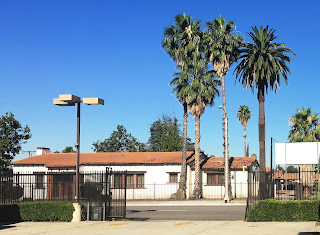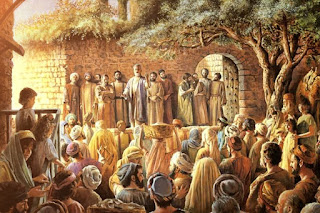There are several different ways we can live our lives. One is to live a purely single-dimensional life; with no interest or concern with anything outside of what is obvious and completely self-centered. Anything that cannot be seen, touched, or comprehended with basic physical senses is not real and not worth the attention. We live in a world with a lot of people like this. Whatever they don't understand isn't important; this can even extend to the point of not caring about anything or anybody that doesn't do anything for them. This can also extend to intellectuals who insist that only what they can prove or imagine is real, and those who judge everyone by their own image. They also often want someone or something outside of themselves to make them "happy."
There are people who know that there is a good chance that there is something beyond the obvious, but have a tendency to want whatever it is to follow their own desires. If they believe in something outside of themselves, they usually think that it can be manipulated for their own benefit. Whatever "God" they believe in, they are trying to control by following all the rules and saying all the right things, and feel they are entitled to get what they want. They often talk about "love" and helpfulness, but it's on their own terms. Some of them become angry if their expectations are not met on their terms.
The best example we have of a God who cares about us and wants the best for us is the God of the Bible. The first thing we notice is that God does communicate with people, but from His own space. The entire Bible lists examples of His interaction with His creatures--us! We read that "In the past God spoke to our ancestors through the prophets at many times in various ways, but in these last days He has spoken to us by His Son, whom He appointed heir of all things...".(Hebrews 1:1-2) but we are not supposed to live life on our own knowledge and strength, but that " I can do all things [i]through Him who strengthens me. "(Philippians 4:13). We are created to live in a multi-level universe; that there is something that we cannot imagine that has been prepared for those who commit themselves to a relationship with God. If we admit our own inability to live up to His plan, and turn our struggles over to Him, amazing things can happen. He can remove the weaknesses, sins, and temptations of this world--I have seen this happen in my own life.
Jesus is the breakthrough of God into our lives--from His birth, His baptism, the times His disciples--and His enemies--saw God connect with His human self, and then His death, Resurrection, and return to His Father. This is Life that is above and beyond the basic world that too many people think is all there is.






























